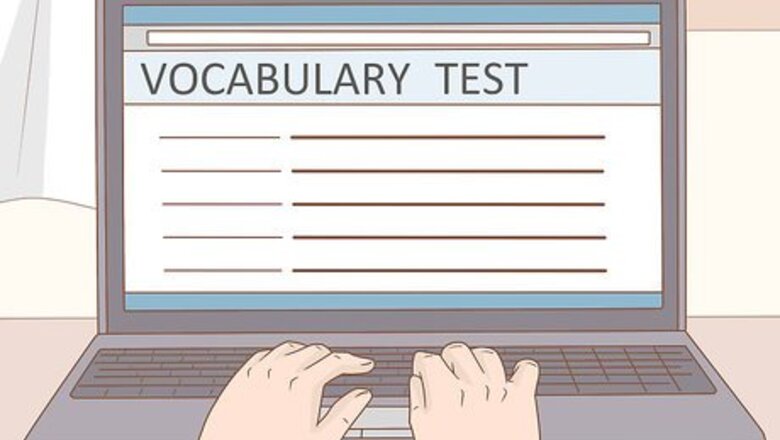
views
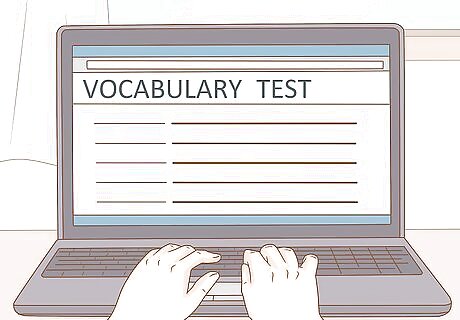
Determine your present level of vocabulary. This is something you can do by taking few online Vocabulary Tests which are available through a variety of websites. Take these test to know the strengths and weaknesses in your present vocabulary. Prepare your own list of vocabulary that you can go through everyday.
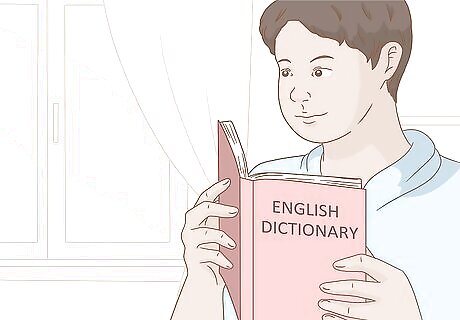
Read a dictionary. A dictionary is a good resource for learning and mastering English words. You don't have to read it cover to cover, just pick out a few words that interest you and learn how to use the properly. Alternatively, try an encyclopedia. Many dictionaries provide word etymologies, both print and online. Whenever you come across an unfamiliar word, look up the etymology of that word. Then, look at other words that share the same root words. Associating unfamiliar words with known words that share the same root can be a great way to build vocabulary.

Buy a few books to assist in your studies. Go to any good library or bookstore and find a knowledgeable member of staff to help you. This person may be able to listen to you speaking English and then help determine the books that will be the most useful to you.

Begin at your present level. If your level of vocabulary level is high, start at the highest level where you recognize and understand every word put before you. If your vocabulary is small, work gradually to improve in constant, small steps.
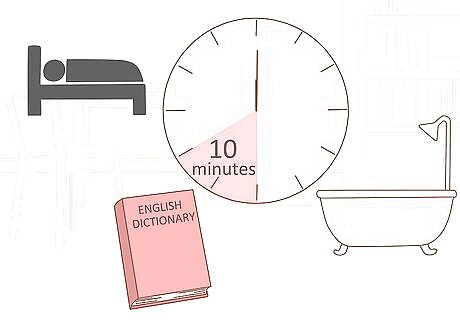
Prepare a study schedule. Follow your schedule, even if it is only for 30 minutes per week, once a week. It's better if you can spend 10 minutes per day - daily usage and practice will help fastest.

Subscribe to a website which sends A Word A Day to your Inbox. One such site is through Merriam-Webster, the dictionary company. You can find many others, as well.

Say each word as you read it. This is very important. Make sure your pronunciation is correct. There's nothing more embarrassing than trying to impress people with your newfound language skills, only to find out that the word you were going for was pronounced "Fa-SEE-Shus," not "Fa-KET-EE-uss." (That's "facetious," by the way.) Pronouncing the words out loud will help them form naturally when you speak them in front of others. It is especially important for non-native speakers to do this as English pronunciation of letters and sounds may differ from your native language. English is notoriously tricky to master as so many of its 'rules' have exceptions.

Write down the definition of any new word you learn. Write a few sentences using the words too. This will help them stick in your head, along with the meanings. Read your sentences aloud, making sure to pronounce carefully. There is, potentially, a little muscle memory at play here - forming the words correctly the first few times will ensure that you always form them this same way. If you start saying a word wrong, it's really hard to get your brain around to saying it the correct way later. If your English skills are quite advanced, why not combine the vocabulary you've learnt over a number of days, perhaps a week, or 10 days, into a short story.

Repeat the word you learn each day, adding one new word every day. As you feel sure you will not forget word #1, drop it from the list, and continue.
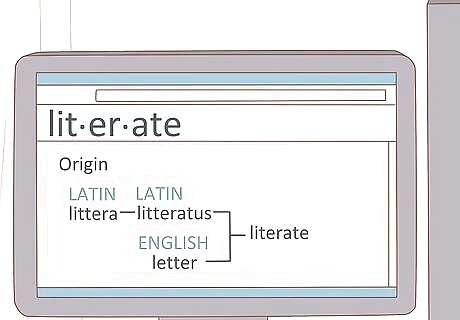
Consider studying etymology, the history of words, and mnemonics. Many people believe the best way to master words is to learn them through etymology and mnemonics. Learn a root so that you can learn many other words based on that root. For example the word 'literate'. Once you know that word, you can learn the modifications to that word, such as: illiterate, literature, literacy, literalism and a host of other words, to assist you in your mastery of English words.




















Comments
0 comment